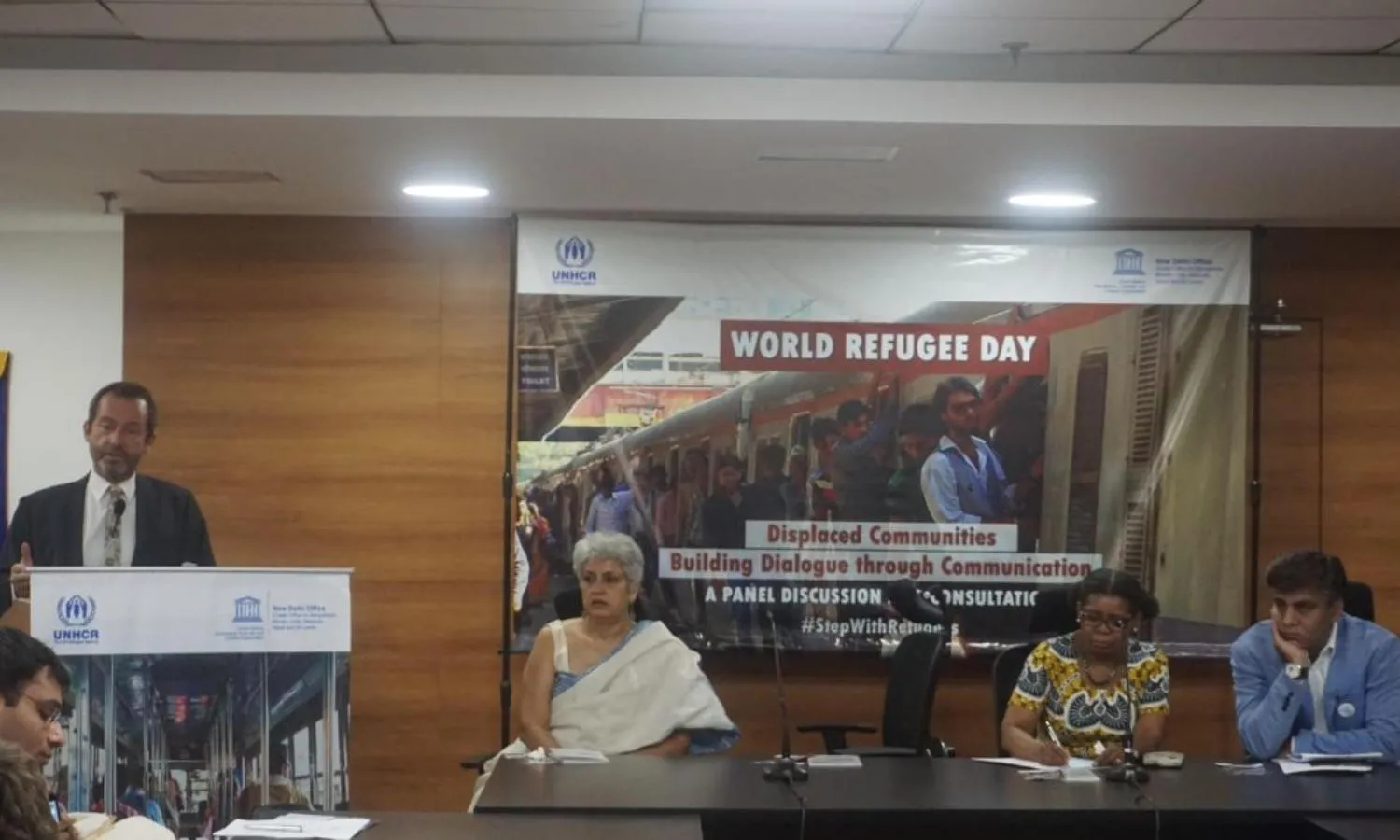World Refugee Day 2019: Challenges for Rohingya and Afghan refugees in India
Panel discussion

NEW DELHI: On the occasion of the World Refugee Day 2019, UNESCO New Delhi Cluster and UNHCR India organised a panel discussion and public consultation on the theme ‘Displaced Communities: Building Dialogue through Communication.’ Migrant and refugee communities along with civil society organisations, media practitioners and journalists attended the event.
UNHCR’s Global Trend Report released on 19th June 2019 revealed that 70.8 million people are now forcibly displaced in the world. Grace Shaidi Mungwe, Deputy Chief of Mission at UNHCR stated that these displaced communities include refugees (25.9 million), asylum seekers (3.5 million) and Internally Displaced People (41.3 million).
‘We need to focus on the human face of migration. UNESCO’s ‘Social Inclusion of Internal Migrants in India Report 2013’ states that 70.7% of the internal migrants are women who are denied economic, educational and political opportunities. The migrants face several challenges like denial of identity proofs, property rights, lack of political representation, low-income jobs and others. Migrant women and children are also more prone to human trafficking and sexual exploitation’, said Eric Falt, Director and UNESCO Representative to Bhutan, India, Maldives and Sri Lanka.
To further explain the various challenges faced by the Rohingya communities in India, the conference had invited Nezamuddin (refugee from Myanmar) and Parniyan (refugee from Afghanistan).
‘We have no choice. We have to save our lives. I am not against the Burmese people as my family had relations with them for almost 35 years. I am against those few people who spread hate through media that resulted in the genocide’, explained Nezamuddin, who works as a translator for UNHCR.
The Rohingya communities in India voice ferociously against the media bias that has been created against them. They are denied citizenship, passport and have very limited documents. The fear of deportation is always palpable.
Recently, Wa Lone and Kyaw Soe Oo (Reuters journalists) were awarded the 2019 Pulitzer Prize for their investigative journalism on the mass expulsion of Rohingya refugees. Stephen J. Adler, the Editor-in-Chief of Reuters had rightly stated that there needs to be more precise focus on the Rohingya refugees that are being reported instead of the journalists who are reporting them.
‘We are voiceless people. We have no property, no identity. We have to survive as a human being, just like you’, pleaded Nezamuddin, almost close to breaking down.
Another category of refugees that have inhabited India are those from Afghanistan, who fled their country during the past 30 years of war.
‘Social media is playing an important role in the refugee’s life. Too many people are writing about refugees. Some of these statements are not true and others not even reveal the true reality. For example, in the case of Abdul Samad, (also known as Afghan Chacha) social media played a strong role in spreading awareness about him being an avid chess player. But in the case of the recent Sri Lanka bomb blasts, social media also caused hatred and suspicion against the Afghan and Pakistani refugees without any evidence, thereby inciting more hatred against them’, said Parniyan.
Turning towards internally displaced people and the challenges they face, Pheroze Vincent,Special Correspondent at The Telegraph revealed an interesting dynamic during the 2019 Lok Sabha Elections. ‘In states like Andhra Pradesh, Madhya Pradesh, Tamil Nadu and Punjab, there was a growing perception that migrants were outsiders who stole away jobs’.
‘During the Ramadan period in Gurgaon, all worshippers were called Rohingya refugees by those who had issues with open-air worship’, he said. Additionally, the cases of violence against the Africans have increased in the past 2 years. The victims are so scared that they not only avoid talking about it to policemen but even hide it from their own families.
‘In journalism, we do not have the needed sensitization to approach these refugees to better understand their cultural tendencies. We are either limited by flak, dip in sales or mere TRP promotions’, he reflected.
‘Refugees only get reported when there is an incident. There is no feature story done on them, otherwise’, said Divya Trivedi, journalist at Frontline. Additionally, the refugees also need trauma counselling along with social cohesion.
The solitariness, ignominy and threat of being a refugee in a foreign country, alienated from one’s own roots does jeopardise the entire psyche, future and survival of a refugee. The limitations on the freedom of movement and increasing trends of establishing borders as a result of advent of right wing populism would have egregious ramifications in the coming years.



